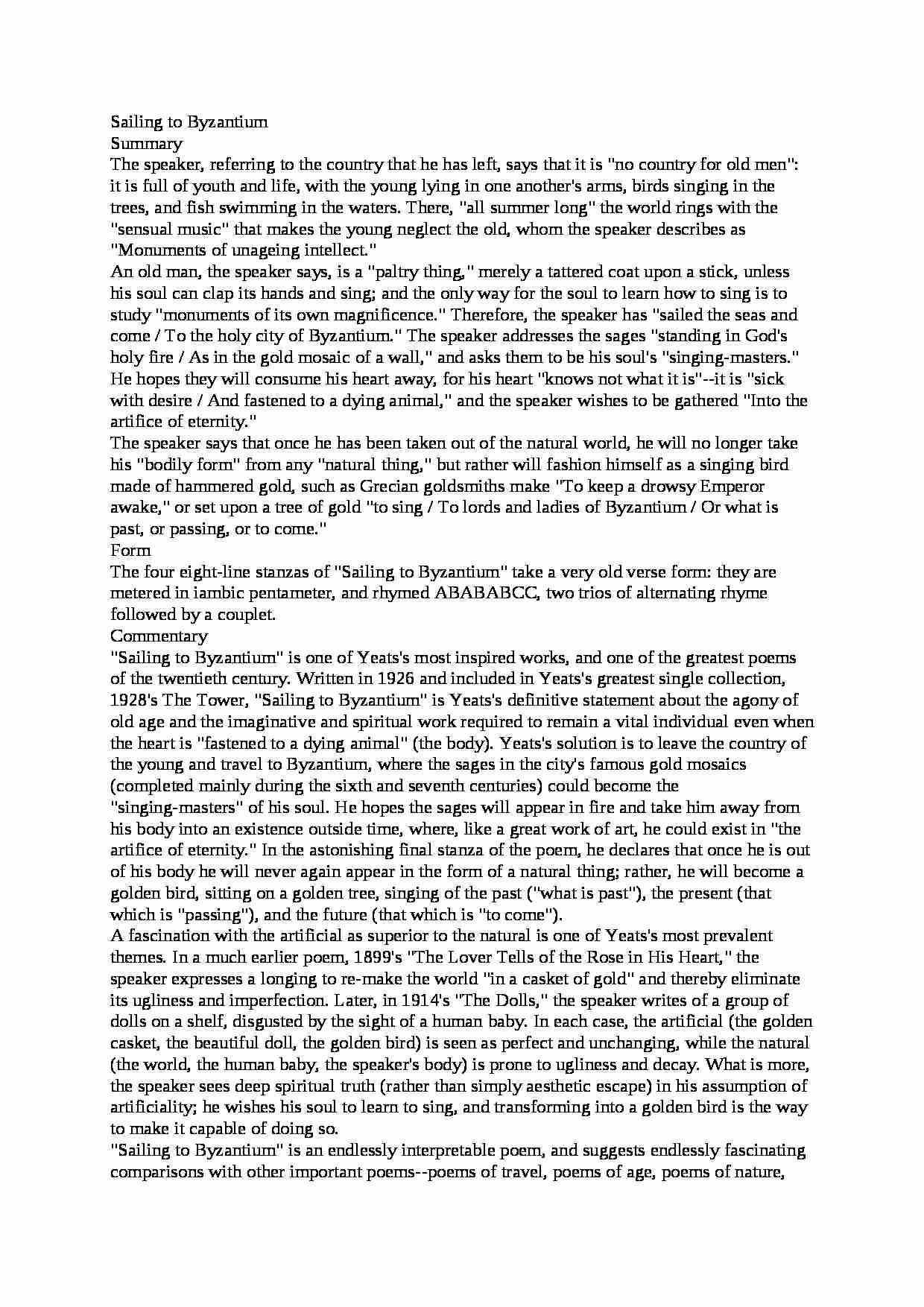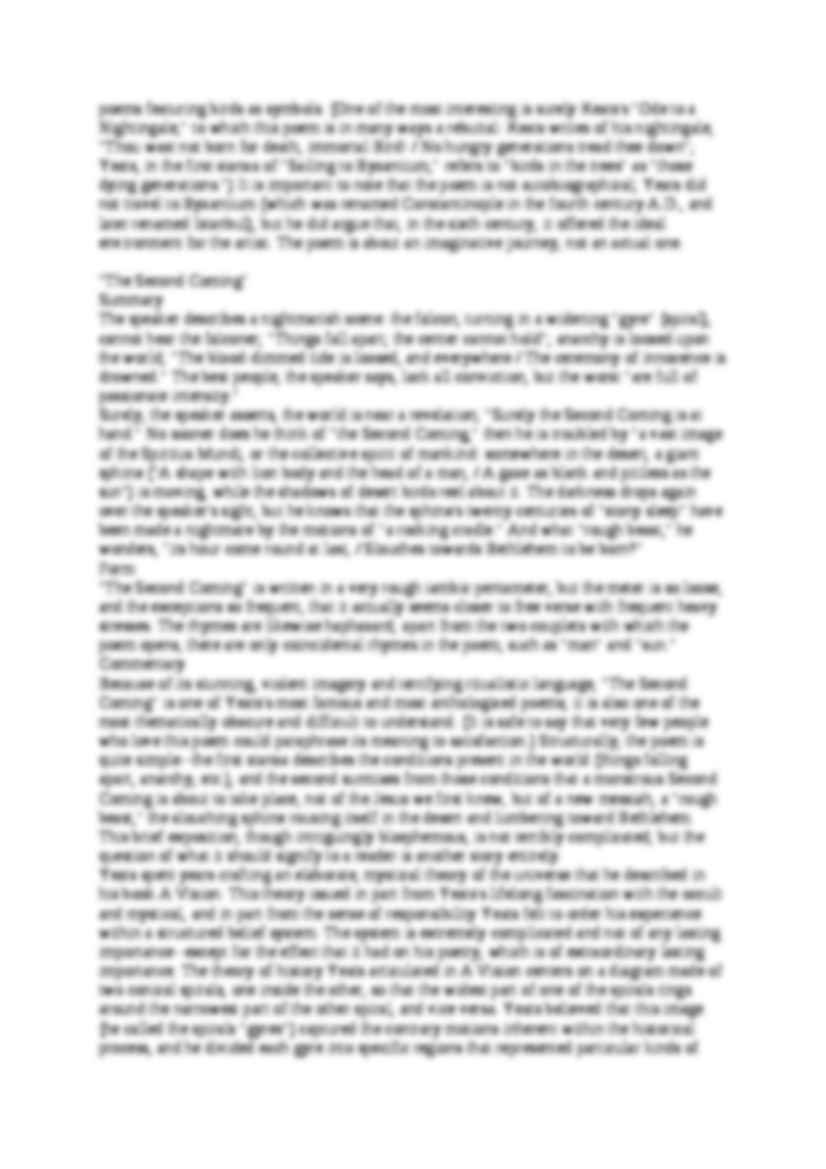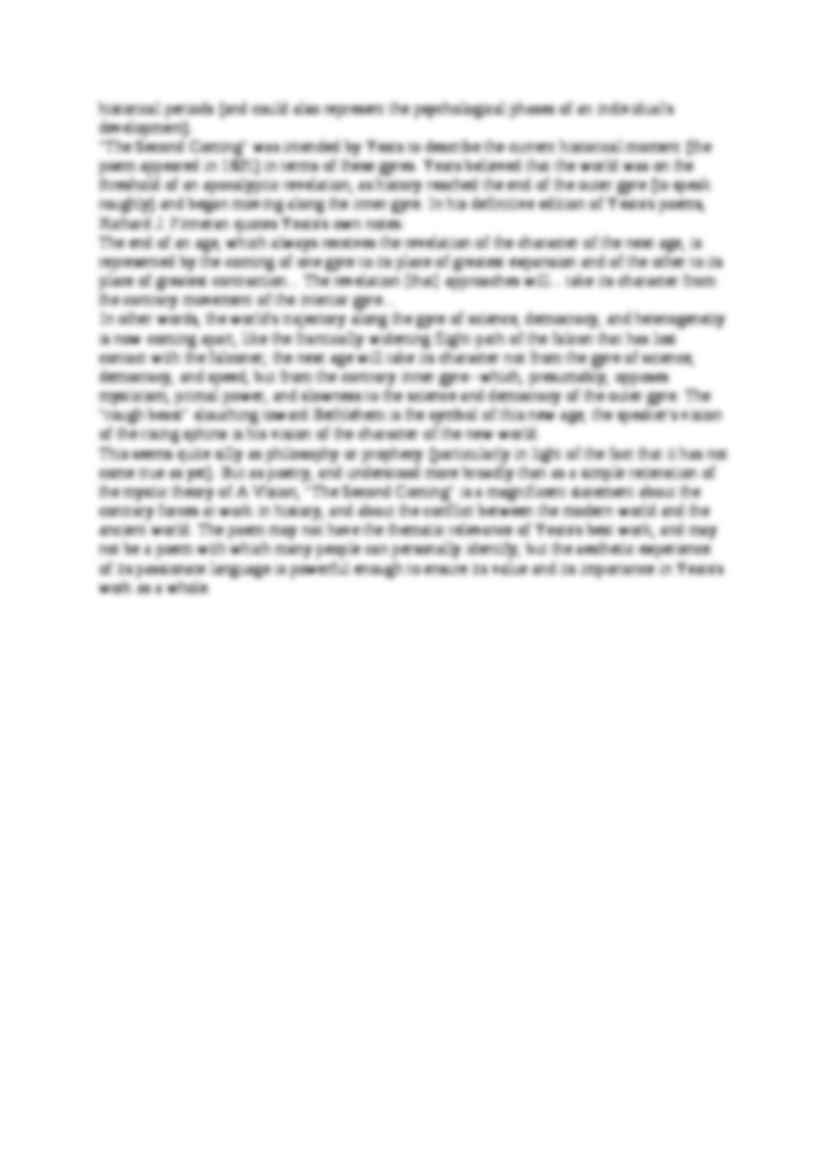Sailing to Byzantium
Summary The speaker, referring to the country that he has left, says that it is "no country for old men": it is full of youth and life, with the young lying in one another's arms, birds singing in the trees, and fish swimming in the waters. There, "all summer long" the world rings with the "sensual music" that makes the young neglect the old, whom the speaker describes as "Monuments of unageing intellect." An old man, the speaker says, is a "paltry thing," merely a tattered coat upon a stick, unless his soul can clap its hands and sing; and the only way for the soul to learn how to sing is to study "monuments of its own magnificence." Therefore, the speaker has "sailed the seas and come / To the holy city of Byzantium." The speaker addresses the sages "standing in God's holy fire / As in the gold mosaic of a wall," and asks them to be his soul's "singing-masters." He hopes they will consume his heart away, for his heart "knows not what it is"--it is "sick with desire / And fastened to a dying animal," and the speaker wishes to be gathered "Into the artifice of eternity." The speaker says that once he has been taken out of the natural world, he will no longer take his "bodily form" from any "natural thing," but rather will fashion himself as a singing bird made of hammered gold, such as Grecian goldsmiths make "To keep a drowsy Emperor awake," or set upon a tree of gold "to sing / To lords and ladies of Byzantium / Or what is past, or passing, or to come." Form The four eight-line stanzas of "Sailing to Byzantium" take a very old verse form: they are metered in iambic pentameter, and rhymed ABABABCC, two trios of alternating rhyme followed by a couplet. Commentary "Sailing to Byzantium" is one of Yeats's most inspired works, and one of the greatest poems of the twentieth century. Written in 1926 and included in Yeats's greatest single collection, 1928's The Tower, "Sailing to Byzantium" is Yeats's definitive statement about the agony of old age and the imaginative and spiritual work required to remain a vital individual even when the heart is "fastened to a dying animal" (the body). Yeats's solution is to leave the country of the young and travel to Byzantium, where the sages in the city's famous gold mosaics (completed mainly during the sixth and seventh centuries) could become the "singing-masters" of his soul. He hopes the sages will appear in fire and take him away from his body into an existence outside time, where, like a great work of art, he could exist in "the artifice of eternity." In the astonishing final stanza of the poem, he declares that once he is out of his body he will never again appear in the form of a natural thing; rather, he will become a golden bird, sitting on a golden tree, singing of the past ("what is past"), the present (that which is "passing"), and the future (that which is "to come").
(…)
… artificiality; he wishes his soul to learn to sing, and transforming into a golden bird is the way to make it capable of doing so. "Sailing to Byzantium" is an endlessly interpretable poem, and suggests endlessly fascinating comparisons with other important poems--poems of travel, poems of age, poems of nature, poems featuring birds as symbols. (One of the most interesting is surely Keats's "Ode…
… was renamed Constantinople in the fourth century A.D., and later renamed Istanbul), but he did argue that, in the sixth century, it offered the ideal environment for the artist. The poem is about an imaginative journey, not an actual one. "The Second Coming" Summary The speaker describes a nightmarish scene: the falcon, turning in a widening "gyre" (spiral), cannot hear the falconer; "Things fall apart; the…
… edition of Yeats's poems, Richard J. Finneran quotes Yeats's own notes: The end of an age, which always receives the revelation of the character of the next age, is represented by the coming of one gyre to its place of greatest expansion and of the other to its place of greatest contraction... The revelation [that] approaches will... take its character from the contrary movement of the interior gyre…
… enough to ensure its value and its importance in Yeats's work as a whole. William Butler Yeats
SAILING TO BYZANTIUM
THAT is no country for old men. The young In one another's arms, birds in the trees - Those dying generations - at their song, The salmon-falls, the mackerel-crowded seas, Fish, flesh, or fowl, commend all summer long Whatever is begotten, born, and dies. Caught in that sensual music all…
... zobacz całą notatkę






Komentarze użytkowników (0)